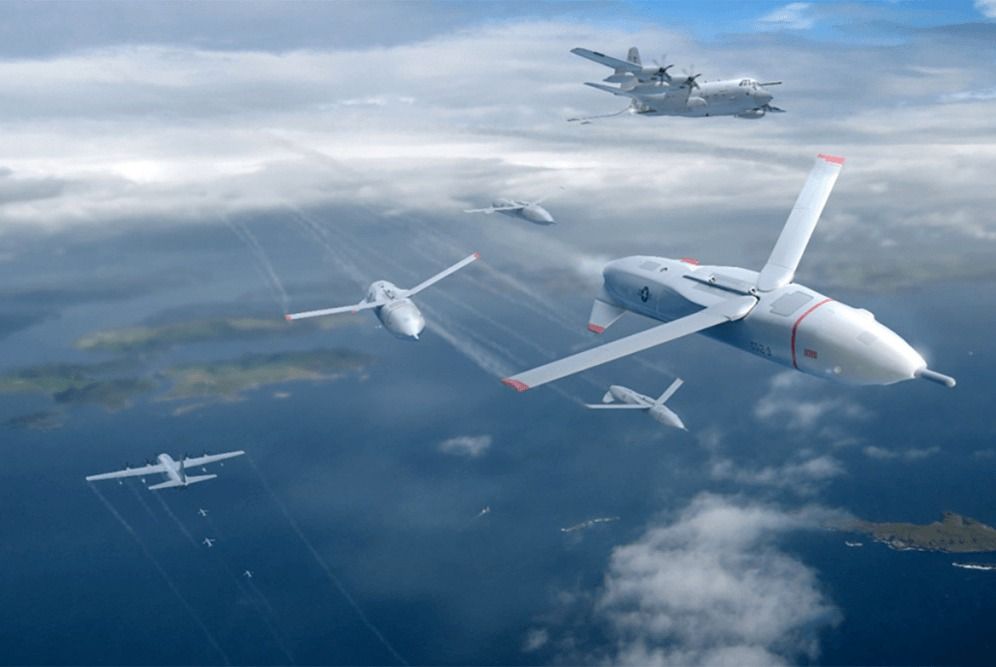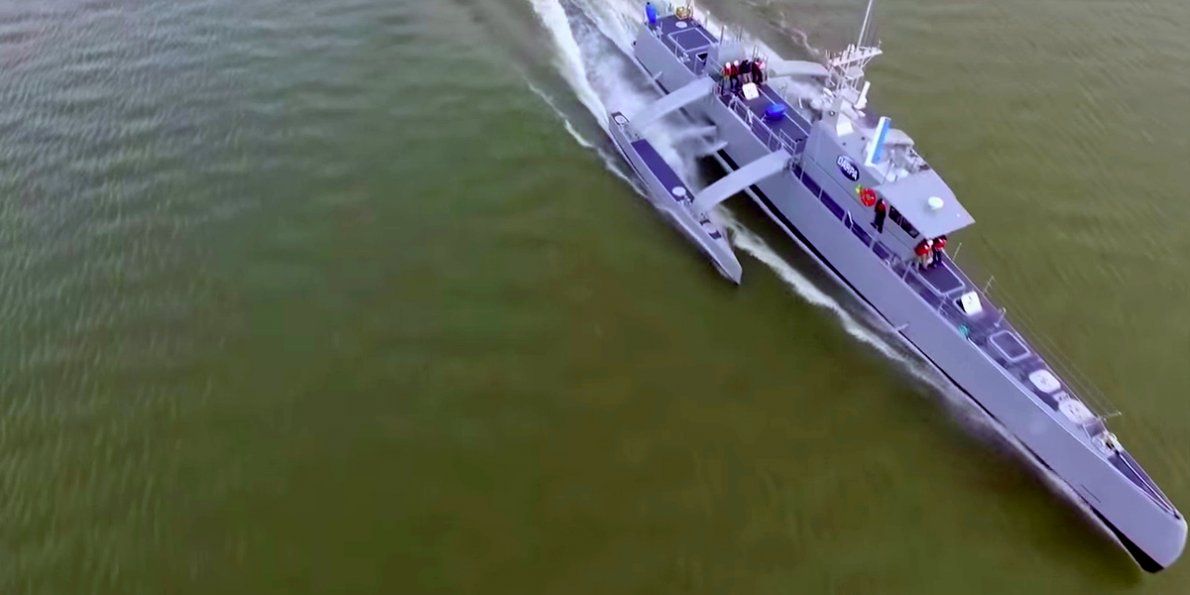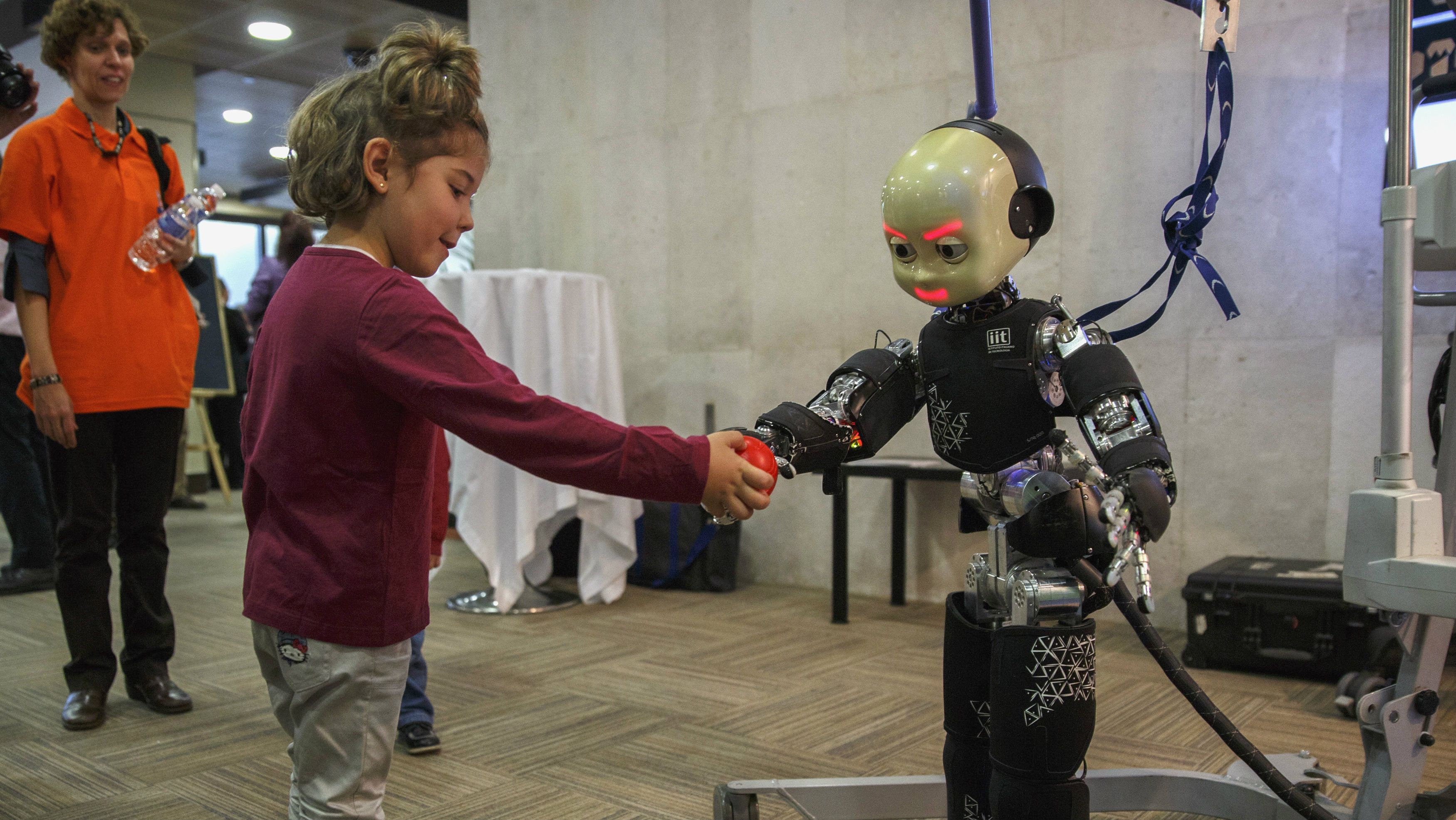DJI unveils its new Matrice 600 drone, capable of handling the insane Red Epic camera in the air.
By: Anthony Garreffa | Science, Space & Robotics News | Posted: 1 hour, 19 mins ago.
DJI unveils its new Matrice 600 drone, capable of handling the insane Red Epic camera in the air.
By: Anthony Garreffa | Science, Space & Robotics News | Posted: 1 hour, 19 mins ago.

DARPA’s newest invention is the Gremlin: a drone that be deployed from a bomber while in flight, execute its mission, and then return to an extraction point where a cargo plane yanks it out of the sky and brings it safely home.
The drones are capable of flying unmanned, but being able to retrieve them makes them reusable, which is both cost-effective and convenient. But drone retrieval also protects U.S. military technology and secrets. Sending fleets of tiny Gremlins on intelligence-gathering missions is one thing, but being able to recapture them instead of leaving them in the hands of hostiles is a huge boon to the military. Gremlin drones have up to three hours to accomplish reconnaissance missions, at which time they automatically fly back to a retrieval area to be collected by a C-130 cargo plane.
Related: DARPA’s 130-foot submarine-hunting drone will take to the sea in April.

You hear a lot these days about the potential for impending doom as AI becomes ever smarter.
Indeed, big names are calling for caution: the futurist optimism of protagonists like Ray Kurzweil is outweighed by the concern expressed by Bill Gates, Elon Musk and Stephen Hawking. And Swedish philosopher Nick Bostrom’s scary thought experiments around what AI might lead to could well sustain a new strain of Nordic noir. There are, indeed, reasons to be concerned.
The fictional Hal’s refusal to open the pod bay doors in Kubrick’s 2001: A Space Odyssey seems a lot less like fiction than it did when the movie came out almost 50 years ago. Today, we have real reason to be concerned about the potential for autonomous drones making decisions about who to take out, or self-driving cars making a choice between hitting a roadside tree and hitting a child.


Depends who is doing the creating. If a robot is created/ altered by ISIS to attack the western world then robots. At the same time, if a crazy scientist decides to genetically create Cyclops to take over the UK, US, etc. then the genetically alter species. Truly depends on the creator and the creator’s eye.
At Silicon Valley’s inaugural Comic Con, we gave a talk called “Superbabies vs. AI.” Astro, who is captain of moonshots at Alphabet’s X division, argued that genetically engineered babies are going to destroy civilization as we know it. He sees the horror of eugenics, X-Men, and a planet entirely populated by the sort of kids who beat him up in middle school, all rolled into one. Danielle, a physician-scientist and wife of said captain of moonshots, argued that the robot apocalypse is going to annihilate humanity. Super intelligent computers will eventually destroy us all, no matter what sort of Asimovian instructions we try to give them. The jury is out about who won the debate, but here are the most important issues we explored.
Will highly evolved AI break into banking systems and steal all of our money or send drones to kill us all?
It’s not likely that AI will ever resemble a human super villain. As an analogy, while airplanes and birds can both fly, they are not otherwise similar, and neither is better at all aspects of flying. Likewise, computers are already much better than humans when it comes to memory and calculations, but they can’t manage a three minute conversation with a barista at Starbucks.
Initially SpaceX plans to reduce the cost of a Falcon 9 rocket with a reused booster to $43 million per flight, a savings of 30 percent.
SpaceX will try to return the booster that was just landed on the drone ship back to Cape Canaveral, in Florida, by Sunday. After running a series of tests on the Falcon, the company plans to fire its engines 10 times in a row on the ground. “If things look good it will be qualified for reuse,” Musk said. “We’re hoping to relaunch it on an orbital mission, let’s say by June.”
SpaceX plans to have its first manned flight by the end of 2017 with the second generation of the Dragon capsule. SpaceX will have an unmanned test of the new Dragon capsule first.
Still haven’t had enough of SpaceX’s rocket landing in the middle of the ocean? Well, new 4K video is here to satisfy you and then make you hungry for more. Late last night, SpaceX released high-definition footage taken from a chase plane, showing the Falcon 9’s delicate descent onto the autonomous drone ship “Of Course I Still Love You.”
The extra detail gives you a nice glimpse into how the rocket’s legs deployed just prior to landing (and that one of the legs seemed to lag behind the rest). It also shows how the vehicle landed a little off its mark. SpaceX probably didn’t want to show off too much by hitting the bulls eye. That just wouldn’t have been fair.
SpaceX has finally landed its Falcon 9 rocket on a drone ship at sea, after launching the vehicle into space this afternoon. It’s the first time the company has been able to pull off an ocean landing, after four previous attempts ended in failure. Today’s success is a crucial milestone for SpaceX, as it shows the company can land its rockets both on solid ground and ocean.
This is the second time SpaceX has successfully landed one of its rockets post-launch; the first time was in December, when the company’s Falcon 9 rocket touched down at a ground-based landing site in Cape Canaveral, Florida, after putting a satellite into space. Now that SpaceX has demonstrated it can do both types of landings, the company can potentially recover and reuse even more rockets in the future. And that could mean much greater cost savings for SpaceX.
Mastering the ocean landing is going to be important, since that’s the type of landing SpaceX will probably conduct more often. At a recent NASA press conference, Hans Koenigsmann, vice president of mission assurance for SpaceX, said the next two to three flights will involve drone ship landings. Ultimately, the company expects to land one-third of its rockets on land, and the rest at sea.

“The scale of Facebook’s ambition, and the rivalries it faces, reflect a consensus that these technologies will transform how people interact with each other, with data and with their surroundings.”
We all know that anything that the public can get their hands on, the black market, etc. already has access as well as those hard to get items like a rocket launcher, etc. So, not sure why anyone will be surprised by this article.
New technologies will level the playing field between the major powers and smaller, independent players.